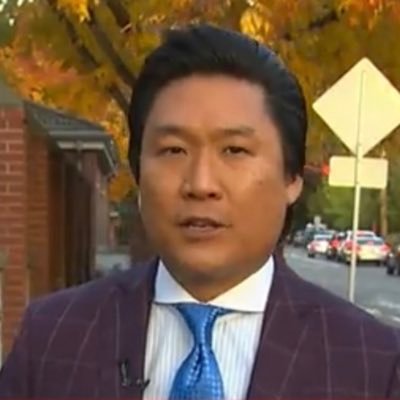
Jonathan Choe
Former KOMO-TV reporter Jonathan Choe said he’s not a neo-Nazi, fascist, or white supremacist.
“Those are just some of the names I have been called over the past few days for my recent coverage of a protest in Olympia,” Choe wrote on Medium. “As a proud Asian American journalist who’s faced years of discrimination for my race and ethnicity, this is comical at best.”
Choe was in Olympia on March 19 covering a Proud Boys rally and tweeting out a timeline of what was going on.
He wrote on Medium:
“In a Tweet recapping the day, I decided to create a photo montage with natural sound from the march… One of my videos picked up music blasting from a speaker strapped over the shoulder of one of the protesters. I could not make out the words and had never heard this song in my life.
I later learned the song is called ‘We’ll Have Our Home Again,” and is sometimes played at white nationalist rallies. This piece was never meant to air on KOMO News and it never did. I wanted it to be a conversation starter, and it sure did incite an unexpected response. In hindsight, I wish I added more context to this Tweet. But before I could clarify or respond to the criticism, my news director told me to take down all my social media related to the Proud Boys march. I was also told by my boss not to speak to any outside media. The following day, I was fired from KOMO.
I’ve been a journalist now for more than 20 years. If there was a Ku Klux Klan rally and cross burning at Seattle Center in downtown, I would be the first person there to cover the event. My job is to present all sides, not just the one that aligns with my values or worldview.”
In a statement, KOMO said that it “did not direct or approve Jonathan Choe’s decision to cover this… rally, nor did his work meet our editorial standards. We decided to end our employment relationship with him.”
A source at the station told TVSpy—an aggregator of television industry news—that staffers were complaining about Choe and that this was the “last straw.” The source also said that station photographers felt Choe was putting them in danger when they worked with him.



